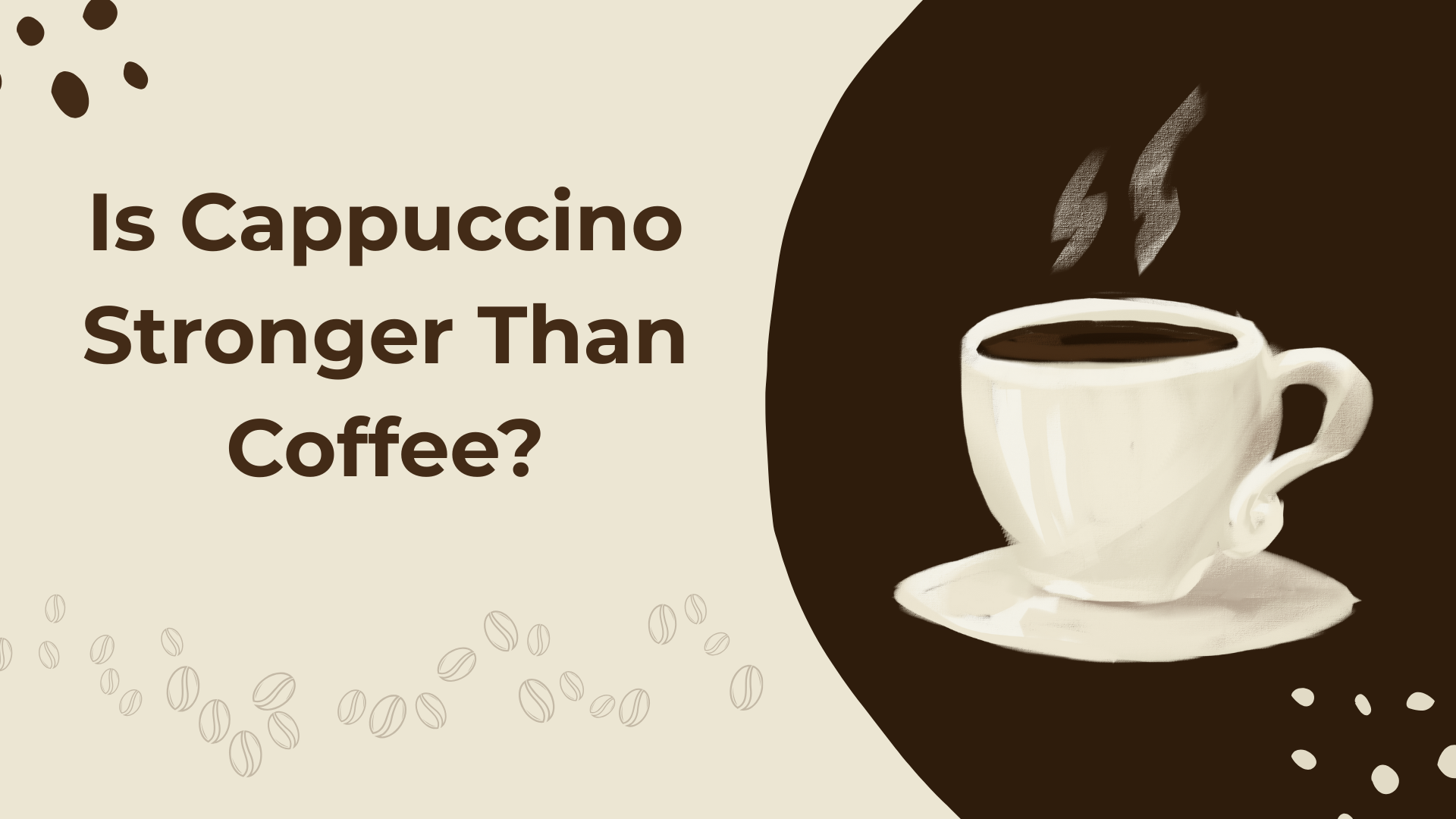If you’re a coffee lover, you’ve probably asked yourself whether a cappuccino is stronger than regular coffee. The question is common because cappuccinos and regular coffee, like an espresso or drip coffee, may seem similar at first glance, but they are quite different in terms of ingredients and preparation. Whether a cappuccino is stronger than regular coffee depends on a few factors, such as the type of coffee used, the amount of milk, and the brewing method.
Let’s break it down and see why cappuccinos have their unique flavor and strength compared to regular coffee.
What is a Cappuccino?
A cappuccino is a coffee drink made from three main ingredients: espresso, steamed milk, and milk foam. It’s usually served in a smaller cup, typically around 6 ounces, which includes roughly one-third espresso, one-third steamed milk, and one-third foamed milk. The milk in a cappuccino adds a creamy texture, balancing out the strong taste of the espresso.
Cappuccinos are well-known for their smooth, velvety texture, and rich taste. But does this make them stronger than regular coffee? Let’s find out.
What is Regular Coffee?
Regular coffee, in this case, refers to drip coffee or brewed coffee, which is made by passing hot water through ground coffee beans in a filter. Drip coffee typically comes in larger cups (usually 8-12 ounces) and is made by brewing a larger quantity of coffee compared to espresso. The strength of regular coffee depends on the coffee-to-water ratio and the brewing time.
Drip coffee tends to have a more diluted flavor than espresso, but because it’s brewed over a longer period and uses a higher volume of water, it can have a significant caffeine content, especially when brewed strong.
Caffeine Content: Does It Matter?
When it comes to strength, caffeine content is often the key factor. A cappuccino uses espresso as its base, and since espresso is brewed under high pressure and in a short amount of time, it has a higher concentration of caffeine compared to regular brewed coffee. On average, a single shot of espresso (about 1 ounce) contains around 63 milligrams of caffeine, whereas an 8-ounce cup of brewed coffee contains approximately 95 milligrams of caffeine.
However, when you compare a cappuccino to regular coffee, the total caffeine content in a cappuccino will often be less due to the smaller size. For example, a cappuccino typically contains one or two shots of espresso, so its caffeine content would be around 63 to 126 milligrams. In contrast, a regular cup of coffee (8 ounces) can contain 95 milligrams or more, depending on how it’s brewed.
Milk: Does It Change the Strength?
The addition of milk in a cappuccino changes the overall strength and flavor compared to regular coffee. Since cappuccinos are made with steamed milk and foam, the milk reduces the overall coffee intensity, making the cappuccino feel smoother and less “strong” than regular coffee. The creamy texture and sweetness of the milk balance the strong flavor of espresso, making it less intense compared to black coffee.
In contrast, regular coffee is typically consumed without milk or with just a small splash of milk, which leaves the coffee’s flavor profile more pronounced. If you prefer a bolder and more robust flavor, regular coffee is likely the better choice.
Taste: How Does It Compare?
In terms of taste, cappuccinos tend to be creamier and smoother due to the milk and foam. The espresso in cappuccinos provides a strong coffee flavor, but the milk softens the intensity, creating a well-rounded, rich taste. This makes cappuccinos a good choice for those who like the taste of coffee but prefer it to be milder and less harsh.
Regular coffee, on the other hand, offers a more straightforward coffee experience, with a bolder, more pronounced coffee flavor. Without the milk to soften the taste, regular coffee has a sharper, more robust flavor, which some people may find stronger.
Brewing Methods and Strength
Another important factor is how the coffee is brewed. Espresso, used in cappuccinos, is brewed using high pressure in a short amount of time, making the coffee more concentrated. This concentrated brew creates a more intense coffee flavor and higher caffeine density. Regular coffee is brewed with hot water over a longer period, typically in a drip coffee maker, French press, or pour-over method. While it doesn’t have the same level of intensity as espresso, regular coffee can still pack a punch, especially if it’s brewed strong.
Conclusion: Is Cappuccino Stronger Than Coffee?
When comparing cappuccinos and regular coffee, it all comes down to what you mean by “stronger.” If you’re talking about flavor intensity, regular coffee will likely feel stronger because it’s brewed with more water and no milk to mellow out the taste. However, in terms of caffeine concentration, espresso (the base of a cappuccino) has a higher concentration of caffeine per ounce than regular brewed coffee.
Ultimately, cappuccinos are less “strong” in taste due to the addition of milk, but they can still pack a caffeine punch. If you enjoy a smoother, creamier cup of coffee, a cappuccino might be the way to go. But if you prefer a bolder, more straightforward coffee flavor, regular brewed coffee is likely to feel stronger. So, whether you opt for a cappuccino or a cup of brewed coffee, both have their unique strengths—depending on what you’re looking for in your coffee experience.
